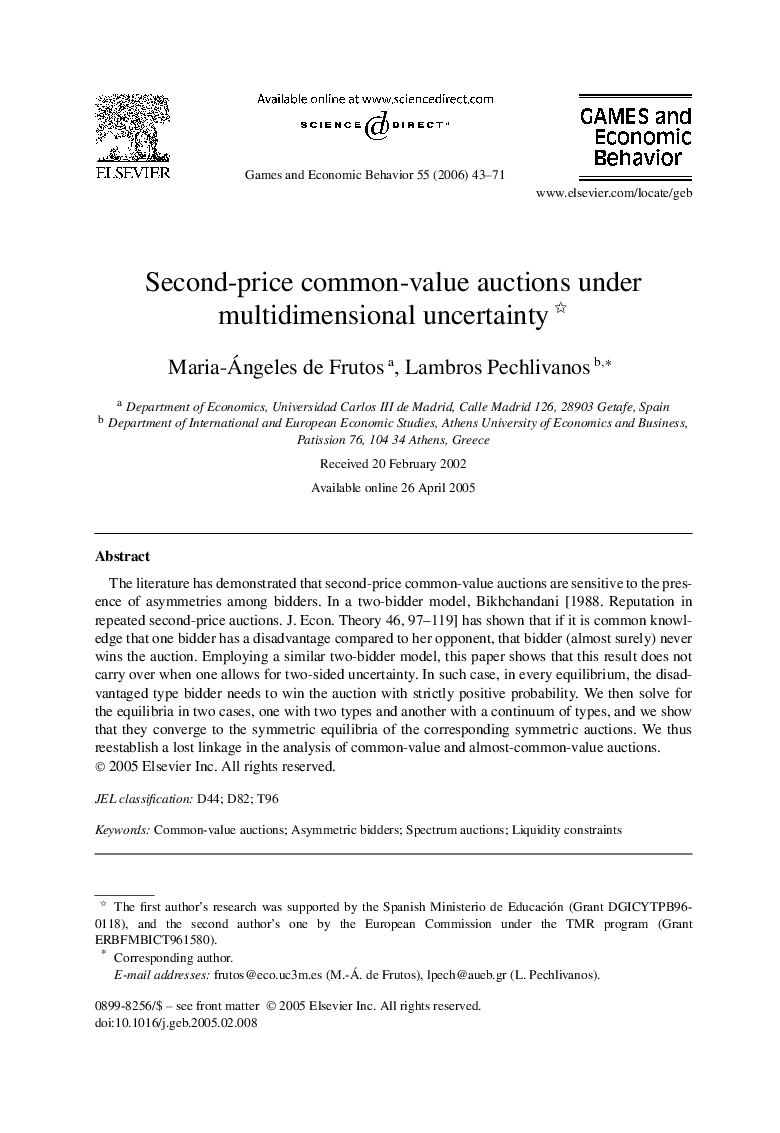| Article ID | Journal | Published Year | Pages | File Type |
|---|---|---|---|---|
| 5073071 | Games and Economic Behavior | 2006 | 29 Pages |
Abstract
The literature has demonstrated that second-price common-value auctions are sensitive to the presence of asymmetries among bidders. In a two-bidder model, Bikhchandani [1988. Reputation in repeated second-price auctions. J. Econ. Theory 46, 97-119] has shown that if it is common knowledge that one bidder has a disadvantage compared to her opponent, that bidder (almost surely) never wins the auction. Employing a similar two-bidder model, this paper shows that this result does not carry over when one allows for two-sided uncertainty. In such case, in every equilibrium, the disadvantaged type bidder needs to win the auction with strictly positive probability. We then solve for the equilibria in two cases, one with two types and another with a continuum of types, and we show that they converge to the symmetric equilibria of the corresponding symmetric auctions. We thus reestablish a lost linkage in the analysis of common-value and almost-common-value auctions.
Related Topics
Social Sciences and Humanities
Economics, Econometrics and Finance
Economics and Econometrics
Authors
Maria-Ángeles de Frutos, Lambros Pechlivanos,
